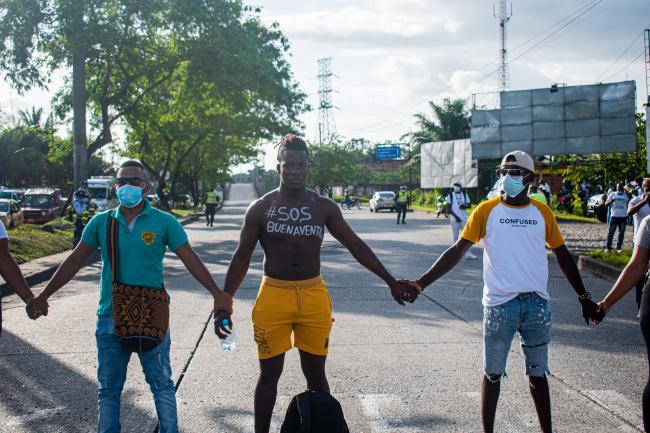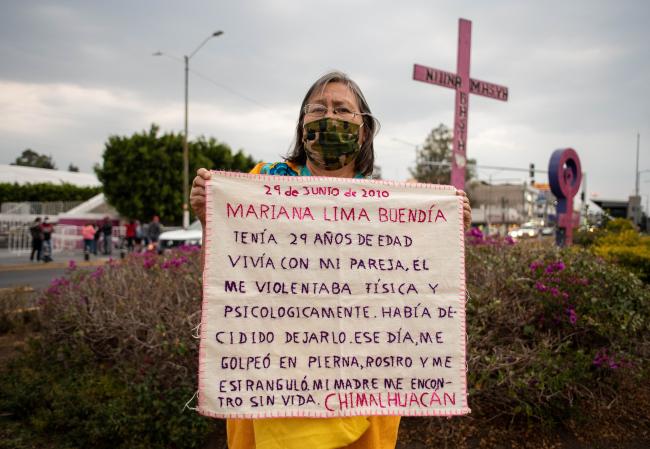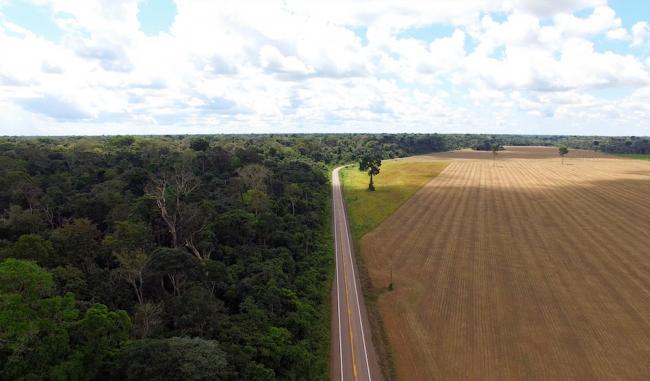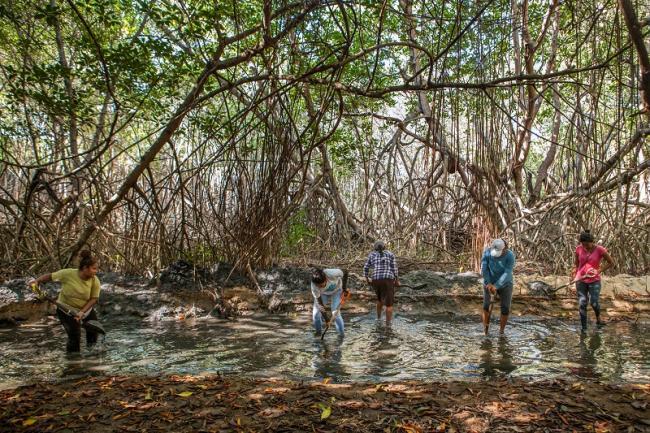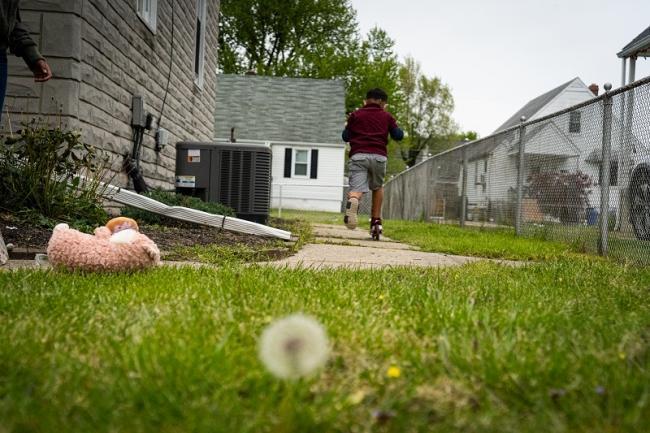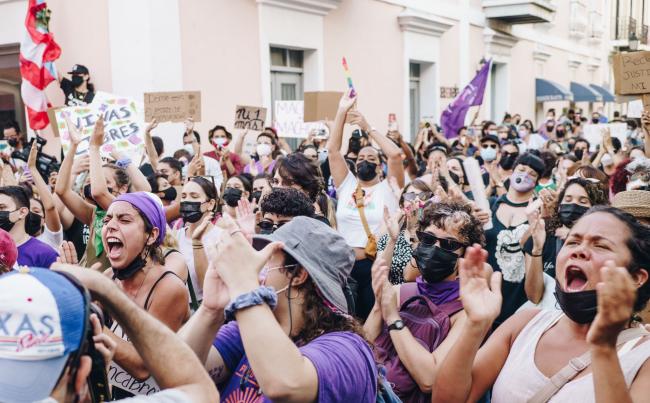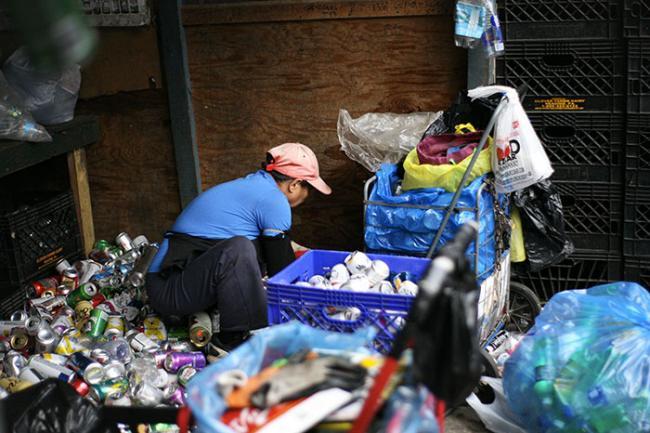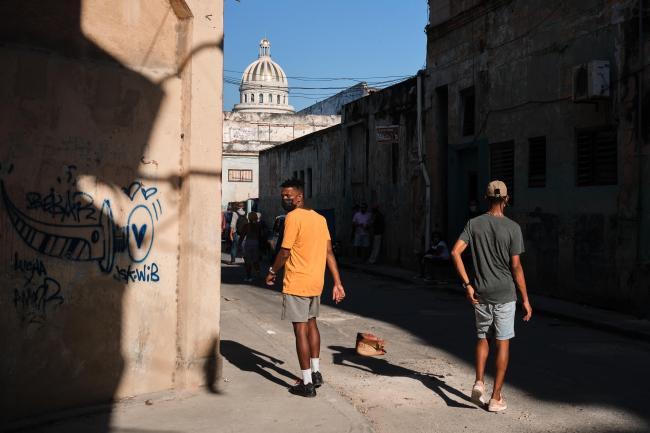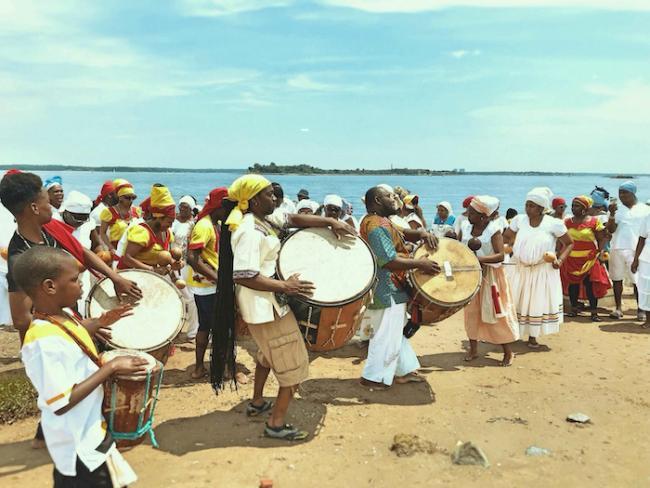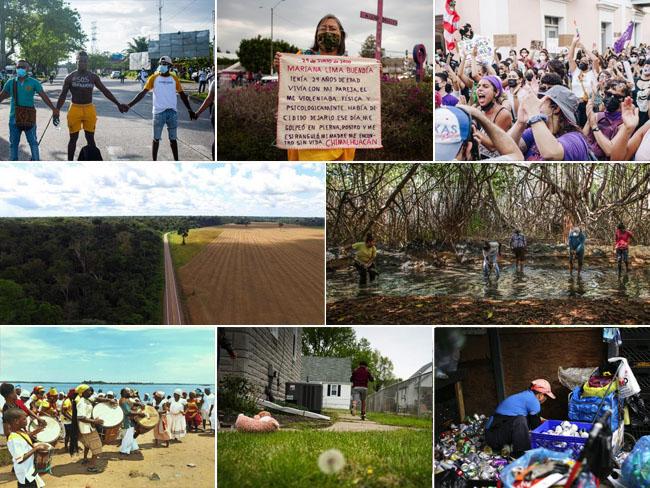
Support our work to help us bring you more quality analysis and reporting in 2022.
In addition to NACLA's articles, photojournalists contribute original photography to our coverage, offering glimpses of the people and places behind the stories. This year, that has included protests in Colombia and Puerto Rico, daily life in Cuba, the work of activists in Mexico, deforestation in Brazil, the unrecognized labor of waste pickers throughout the Americas, and immigration issues in the United States.
Here is a list of our top ten photos of the year. Support our work to help us bring you more quality analysis and reporting in 2022.
Colombia | March 2021
Jann Hurtado
In Buenaventura, Colombia, violence erupted between criminal groups vying for control of illegal economies in the beginning of the year. In response, residents have been raising awareness and calling for major policy changes to address both the current conflict and underlying issues. Here, protesters shut down the Piñal Bridge on February 4, 2021 to disrupt the transport of products through the port.
Mexico | May 2021
María Ruiz
In response to alarming rates of femicide and violence against women in Mexico, many are turning to needles and thread to tell the stories of those abused. The murder of Mariana Lima was one of the first stories that Margarita Flores, a member of the organization Vivas en la Memoria, embroidered. The case set a precedent with a gender-informed sentence. Six years after being deemed a suicide, Mariana’s death was tried in 2016 as a femicide—a historic achievement for women in Mexico.
Brazil | May 2021
Marcos Colón
Brazil is the largest producer and exporter of soy on the planet, and soy fields have expanded by one million hectares in the Amazon biome in recent decades, contributing to deforestation. In 2020, Brazil's Amazon suffered the highest deforestation rate in a decade.
Mexico | June 2021
Antonio Cascio
In Mexico, a fisherwomen's cooperative copes with the impacts of environmental degradation and governmental negligence in the lagoon that they call home. The mangroves of the coastal lagoon complex of Chacahua, Oaxaca are crucial to tackling climate change, as they dampen hurricane and tsunami impact, and prevent coastal erosion.
United States | June 2021
Daniel Zawodny
Special Immigrant Juvenile Status (SIJS) is a federal designation designed to provide humanitarian protection to vulnerable immigrant kids. But in reality, administrative backlog keeps many youth in legal limbo, awaiting their SIJS status.
Puerto Rico | June 2021
María B. Robles López
Recent femicides in Puerto Rico sparked renewed feminist organizing to demand concrete action on gender violence. Demonstrators gathered for the plantón, or sit-in, convened by the Colectiva Feminista en Construcción in San Juan, May 3, 2021.
Colombia | August 2021
Christina Noriega
During the summer, protesting Colombians formed popular assemblies to demand change in their communities and beyond. In Portal Resistencia, a working-class neighborhood in Bogotá, members of a community decide on demands during a popular assembly.
United States | August 2021
Carlos Rivera
During the pandemic, waste pickers throughout the Americas continued collecting, sorting, and recycling waste, even though public officials rarely recognize or respect their work. Here, one informal recycler sorts aluminum cans at Sure We Can in Brooklyn, New York.
Cuba | August 2021
Natalia Favre
During the protests in Cuba this summer, progressive organizations that promote anti-racism and social justice expressed support for the Cuban government, at times disregarding the experiences of Black Cubans, like these two boys walking on the street near the Capitolio in Central Havana.
United States | September 2021
Paul Joseph López Oro
Garifuna are are Black Indigenous peoples from coastal Central America inhabiting the Caribbean coast of Honduras, Belize, Guatemala, and Nicaragua. Pushed out by anti-Black racism and land dispossession, many have migrated to the United States. In New York, the Garifuna community gathered in June 2017 to honor the ancestors at Orchard Beach in the Bronx, New York.

